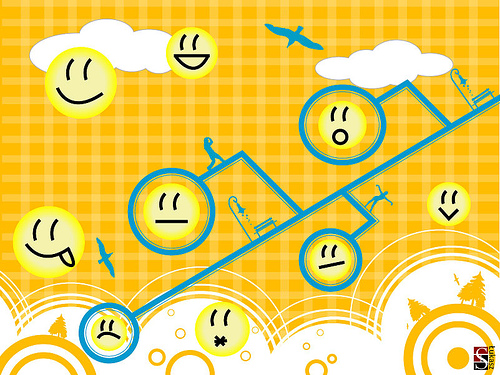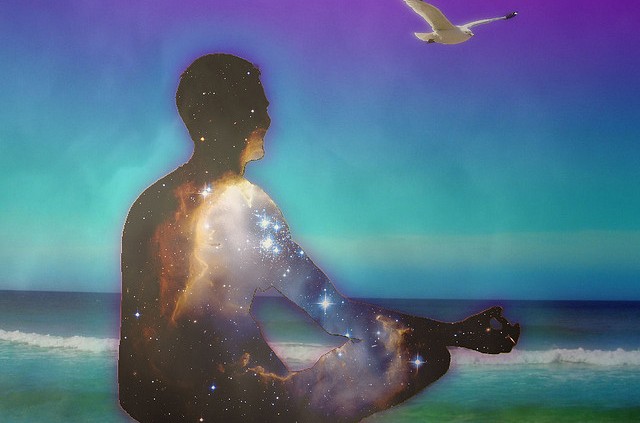The Four Basics Needs
Plato said that Socrates said, “The unexamined life is not worth living.” But in Greek. This is a friend of mine from college’s favorite quote, and I think about it fairly regularly. I’ve become more convinced of it the older I’ve gotten (my friend must have been wise beyond his years). And I hope that if you’re a regular reader, on some level you also agree with the sentiment. Introspection is key to success and happiness.
It sounds so simple, but when we really bring this idea into practice, it can get a bit hairy. Okay, so we’re supposed to examine our lives. Cool. So I guess I’ll just sit down and… think? Maybe. But, think about what? My life? Okay, that’s a lot. Maybe too much.
So how can we think about life in a practical way? What works, and what allows us to understand things in a way that will also allow us to improve them? There are all sorts of great ways to categorize life in this way, including the Life Pie (basically, you rate yourself on six different categories and see how that changes over time. These change depending on who makes the chart, but they are basically: Work, Friends, Love, Health, Spirituality, and Adventure) and Maslow’s Hierarchy of Needs.
The four basic needs are even simpler, and focus on our emotions. They were described by Dr. William Glasser, and this is also referred to as “Choice Theory.” These needs are the ones that are beyond our basic survival: they are our most fundamental emotional needs, and a lack of any will disrupt our whole life.
Of course, as with any psychological theory, there are criticisms and whatnot, but for all practical purposes this description is great. Way easier to think about than Maslow. I’ve used it on wilderness trips with youth, and it provides a wonderful platform for learning to talk about and understand our own emotions. In my own life, it has helped me clarify what I’m missing or needing at a certain time.
Love and Belonging
The biggest, most fundamental need we have is for love and belonging. This can include familial love, romantic love, friendships, being part of a community, the whole shebang. Humans are social creatures, and no matter how introverted we may be, we still need relationships in order to feel complete and healthy (okay, maybe excluding a few reclusive monks/hermits/gurus). Whenever we’re feeling bad, this is a great first place to look to see if there’s something we’re missing.
Am I feeling excluded? Am I feeling lonely, or separated from my people/group/family? Have I been isolated by working too much, by skipping social engagements, by being in bed sick, or anything else?
The importance of this basic need is the reason social media is so popular. Facebook, Twitter, etc, all give us a sense of being connected to each other even when, I would argue, most of those connections are superficial and don’t satisfy the true need for love and belonging.
When love and belonging are lacking, we need to make a special point to get out in the world and connect with the people who mean the most to us. This can be hard, as loneliness can create a vicious cycle of not wanting to see people and feeling more isolated.
Power and Self-Control
Power and self-control refers to having agency in one’s life, and being able in some way to direct its flow. It is connected to freedom (which is next), but it is about being empowered to make big decision happen. For most people, having power and self-control correlates to some kind of stability, perhaps through being able to support one’s self financially.
When we become disempowered, we begin to lose faith in ourselves and the systems around us. Our self-worth may be connected to our power and self-control, as society has taught us that having a good paycheck is a sign that we’re good people. This may not be true, but it can certainly feel that way.
We can also become empowered through education, and by feeling validated in the endeavors we take on in life. Much of the intention of this blog is to help us all become more empowered in our lives, and take control over the negative influences that are all around us.
Freedom
In some ways, freedom can be a manifestation of empowerment, but it does deserve its own category. Someone with a high-paying job who has to work 80 hours a week may be empowered, but lack freedom. Someone who is unemployed may have the freedom to go take off on adventures every week, but lack the power (financially or emotionally) to actually go out and do it.
Freedom is about being able to explore the world and our dreams. This doesn’t necessarily mean we have to go travel abroad every year. It is about being in a place that nurtures our growth, and that allows us to have choices about which direction our lives go.
If we’re lacking freedom, we may lash out at the people or systems we feel are limiting us. Often our perception of what is limiting us is not what is truly responsible. For instance, we may build up resentment toward a partner about something that could be resolved by talking about what our needs are and how they are not being met. Better to express the need for an evening with friends once a week than to feel stifled for years without mentioning it.
Fun
This is the best one. What’s the point of life without a little fun now and then? Even with all our other needs are met, if we don’t have some fun once in a while life will seem dry and monotonous. This can take whatever form we like, but it’s important to have enjoyable experiences. Even better if they help create a sense of love and belonging, or take advantage of some freedoms we have.
With an understanding of these four basic needs, we can begin to examine our lives in a useful way. “What is lacking?” “What is strong?” “What can I do to make things better?” By framing these questions around our needs, we can create concrete plans for improving our lives and taking the next step in our own personal development.
Low on love and belonging? We can call up some friends. Lacking power and self-control? It might be a good time to take a look at our job or living routine. Missing freedom? We can create small acts of spontaneity even in a busy schedule. Not having any fun? Let’s go play some games, pick up an old hobby, or try out a new activity. It’s a great way to frame the question, and leaves out the philosophical angst of trying to figure out how to live an examined life.





